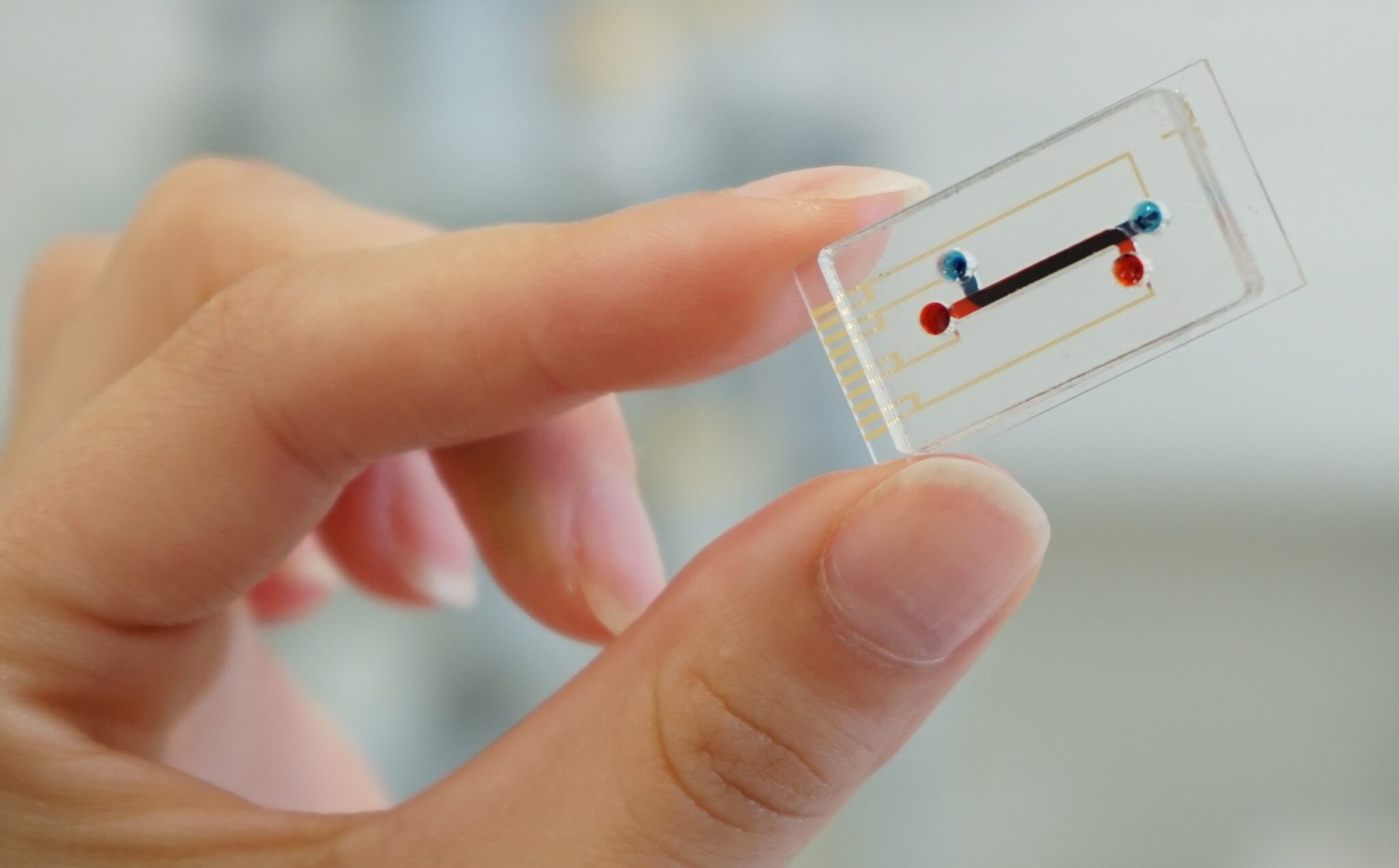| Apr 15, 2024 |
A microfluidic platform that simulates human digestion
|
|
(Nanowerk News) In a recently published study in Analyst ("From mouth to gut: microfluidic in vitro simulation of human gastro-intestinal digestion and intestinal permeability"), INL researchers developed an innovative microfluidic platform that is capable of replicating key human gastrointestinal processes, offering a game-changing tool for the assessment of newly-developed drugs and/or food supplements. The innovation combines a ‘Digestion-Chip’ and a ‘Gut-Chip’, each enabling sequentially the simulation of digestion through the gastrointestinal tract and the evaluation of intestinal permeability.
|
|
The study introduces a miniaturised setup that allows studies of sample bioaccessibility and simplified bioavailability using minimal sample amounts. In addition, the outflow from the ‘Digestion-chip’ can be exposed to the cell-based Gut-Chip, which replicates the intestinal epithelium, using unprecedentedly low sample dilutions thus allowing the detection of ‘rare’ compounds.
|
|
Both devices work in continuous flow requiring very little user interfacing. In this work, casein – a milk protein that is widely used as a supplement in sports nutrition – was tested as a model compound. And critically, the Gut-Chip can be used to evaluate intestinal permeability offering reference permeability values that are in line to those found using human ex vivo models.
|
 |
| The 'Gut-Chip'. (Image: INL)
|
|
Miguel Xavier, one of the first authors of the research study adds “the platform addresses key limitations of existing static and dynamic models, offering researchers an advanced tool to predict the bio-accessibility and intestinal permeability of compounds that are taken orally. And also, by enabling precise evaluation of compound degradation and toxicity in the gastrointestinal tract, this platform aligns with recommendations from regulatory bodies, such as the European Food Safety Agency (EFSA).”
|
|
The microfluidic platform developed in this study marks a breakthrough in the field of in vitro gastrointestinal research. Its ability to replicate human digestive processes places it as a significant tool for advancing drug development, enhancing food safety assessments, and ultimately improving human health outcomes.
|

